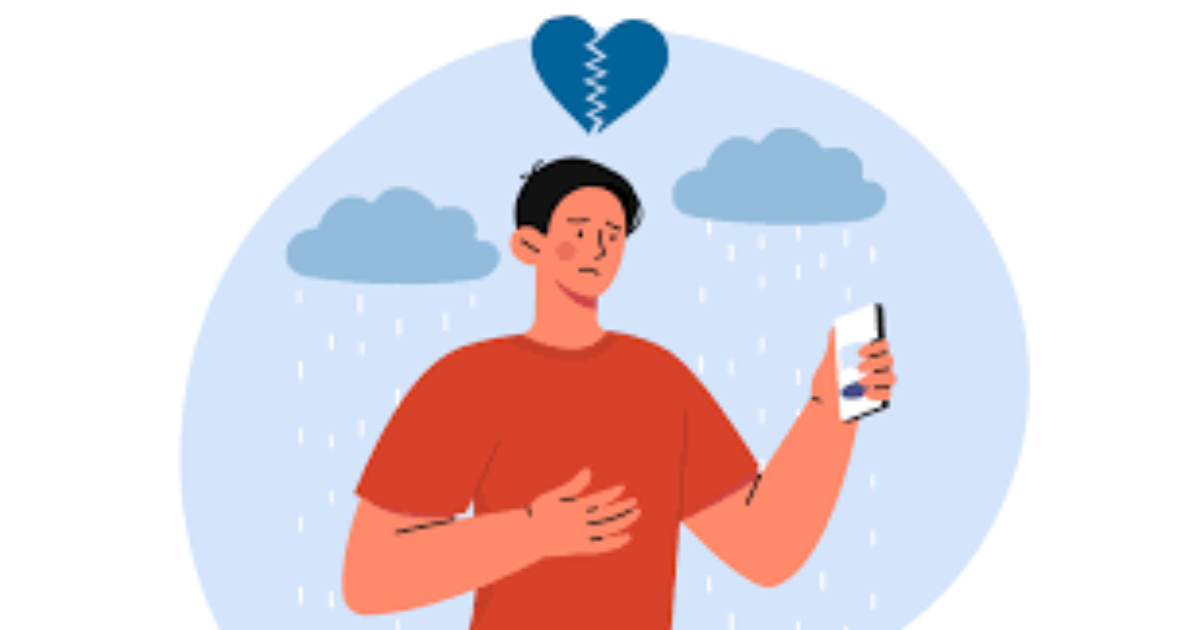Grieving is one of the most difficult emotions in anyone’s life – a person you loved has passed away, and you have to find a way to move on and restore your strength. Grief hotlines are available all over the world – you can reach out to a person who will guide you through the grieving process at any stage.
Let us take a look at hotlines whose counselors specialize in grief and loss – you can learn how they work, when to call, and what can be done for a person who recently lost someone they care about.
What Is a Grief Hotline and Who Is It For?
A grief hotline refers to a phone number an individual can call in case they are dealing with grief and sorrow after the death of the person they were close to. It takes time to heal, and your emotions are all over the place when a family member, friend, or partner is no longer with you so it makes sense to look for help when you are experiencing distress and sadness. Regardless of how close you were to the individual who died and what your relationship had been like before their passing, you should talk to a person who will protect your privacy and tell you what can be done to lessen your pain.
The Difference Between Grief Hotlines and General Support Lines
Crisis hotlines are versatile – if you are looking for any kind of mental health support, you can call and communicate with the individual equipped to help you no matter what your struggles are. Grief hotlines, however, are meant to guide people who have a hard time coping with the loss of their family members or friends. Grief counseling is a separate form of psychotherapy so if you are seeking comfort and consolation after a person who mattered to you passed away, it is better to make a call to a grief helpline right away.
When Should You Call a Grief Hotline?
Everyone’s grieving timeline is different – some people begin to realize the magnitude of the loss the very first day after the passing of the person they love, others need a few days to become aware of the situation, and there are also individuals who are not ready to process what happened weeks and months after the death. There is no right or wrong time to connect with a grief counselor – move at your own pace and reach out for help when you feel you can no longer bear the grief alone.
How Grief Hotlines Help With Emotional Pain
A grief counselor you can connect with via a hotline can support you at a difficult time – there are many benefits grief hotlines can bring into your life:
| Advantage | Description |
| Understand the Stages of Grief | Grieving is rarely a linear process but it helps to know the stages you are already going through or will deal with in the future and come to terms with the loss |
| Express Your Emotions | No matter how devastated you feel, a counselor will listen to you and treat you with the compassion and respect you deserve at such a vulnerable time – you can speak candidly and begin to heal |
| Combat Social Isolation | If you have no one else to turn to while grieving, a therapist you communicate with can provide you with support and validation so that your loneliness does not transform into further mental health problems |
| Regain Control Over Your Mind | You may feel like you are no longer in charge of your emotions which means you cannot shape your life after you lose someone who meant a lot to you – a counselor will help you regain the focus you have been missing |
What Happens During the Call?
Any conversation between a person in need of psychological support and a counselor assigned to aid them is different. Yet there are common elements to every dialogue on a grief hotline:
- State your name, give the hotline worker a brief explanation of why you are calling, and tell them what you want to achieve with your call.
- Remember that it is up to you what details to disclose to the person on the other end of the line – if certain information is too painful to bring up, you will not be forced to do it.

- The main mission of a counselor is to be an active listener – they will offer you some ideas they come up with, coping skills that can help you handle your emotions, and lists of resources and local support groups you can join in order to heal.
Are Grief Hotlines Really Available 24/7?
An emotional support hotline 24/7 lives up to its name – you can contact a counselor during the day and night which makes it a convenient option for people who cannot sleep because of their grief or are unable to schedule an appointment with a therapist due to their business.
Beyond the Call: Support Groups Like GriefShare
Once you are ready to take the next step, you can search online for local support groups that provide people dealing with loss and grief with psychological support. GriefShare groups are based on a well-known program for people who want to heal and regain a sense of agency as they are navigating their emotions – you can learn to manage your anger, overcome loneliness, let go of regrets, build relationships with other people, and find hope you have been missing.
Finding Strength in Shared Experience
Support groups that put emphasis on grief recovery can be the best solution for a person going through arguably the most traumatic time of their life. Here is how grief support groups can help you:
| Advantage | Description |
| Feel Connection With Others | Talking to people who share a common thread with you might be what you need at a time when other people in your inner circle are unable to connect with you on a deeper level |
| Learn From Your Peers | Support groups unite people who experienced loss years ago as well as individuals whose emotions are still very raw. You can hear stories of other individuals and follow in their footsteps towards healing |
| Prevent Mental Health Disorders | Many individuals do not realize how prolonged grief can damage their mental well-being – in order to prevent depression and sleep disturbances you should look for solace with others like yourself |
Helping a Loved One Find the Right Grieving Support
If someone you know well is grieving and you are trying to figure out how to help them, here is what you need to do:
- Remember that there is no universal way to grieve – every individual is experiencing this sadness in their own way so do not rush them and do not expect them to move on or get over what happened too quickly.
- Find the right words to acknowledge the loss – some people need a distraction while others would prefer to talk about the person who passed away. Spending time together in silence can be a source of support as well.
- Determine what you can do to help the person in question. It is likely there are some errands to run, funeral arrangements to make, people to contact, and documents to prepare.
- Pay attention to the mental health of the person. Sadness is normal but it is crucial to prevent depression or panic disorder which is why you need to be mindful of physical and psychological manifestations of mental health issues.
Connect With Someone Who Cares at Pacific Coast Mental Health

In some cases, comforting an individual who is grieving may not be enough – if the loss took a toll on their psyche, they might need therapeutic guidance from mental health professionals. If you or someone you are close to cannot deal with grief that overwhelms you and prevents you from living your life, reach out to Pacific Coast Mental Health – together we can lessen your emotional pain in a validating and supportive environment.
FAQs
What is a grief hotline?
A grief hotline is a phone service created for individuals in need of guidance after the loss of people they care about.
When should I call a grief support line?
You get to decide when to connect with a grief counselor on a support line – there is no right or wrong timing. Call at any time you are ready to talk, and you will be heard and supported.
What can I say to someone who is grieving?
Express your condolences, let the person know you are there for them – be prepared to keep your word – and ask them what you can do to ease their burden at the moment.
How do grief hotlines help?
A counselor picks up the phone, asks the caller to introduce themselves and to tell them more about what bothers them, and offers a plan on how to proceed whether the person requires coping mechanisms or advice on how to reset other areas of their life.
Are grief hotlines available 24/7?
Yes, a grief hotline is supposed to work at all hours so that a person connects with a counselor when it is convenient for them to talk and be heard.





